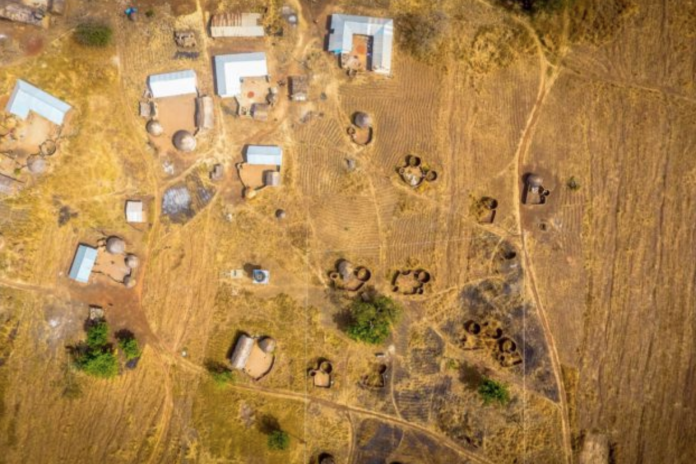It’s a harmattan morning in Naabuli. The weather is brutally harsh- dry, windy and cold all at the same time.
As dawn breaks, the town’s children gather around fire they have set up with pieces of firewood they collected overnight. This is how to keep warm here.
“We would need more firewood today,” mummers one of boys. “There isn’t enough,” says Mary who is seated right opposite.
Even as the dark clears up for the rising sun, there’s a deep sense of eeriness so strong you can’t miss the occasional chirps of birds that cuts through the quiet.
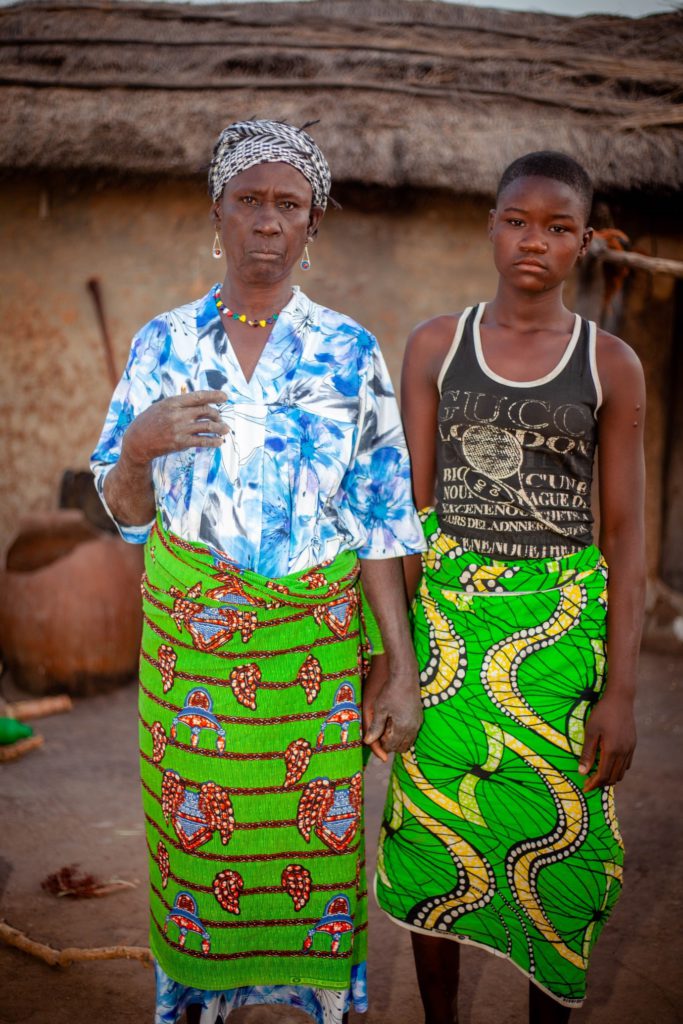
Mary, like many of the children here, are in this town not because they chose to. Their grandparents were accused of witchcraft in their native villages and chased out. Fearing for their lives, many fled and ended up in the Naabuli witches’ camp- one of many in parts of Northern Ghana where the belief witchcraft and its power to cause harm and misfortune is endemic. Those accused are often old, weak and frail- usually women, unable to do any chores on their own, they cannot survive in this camp without help.
Mary and her friends were the ones chosen by their own family members to leave their homes and come and put down their toil so their weak grandparents could live in a witches’ camp.
“I don’t know anything about witchcraft. I do not even understand what witches do. When I was coming here, people kept saying the woman I am going to live with is a witch. They said when I come live with her I would die,” she says.
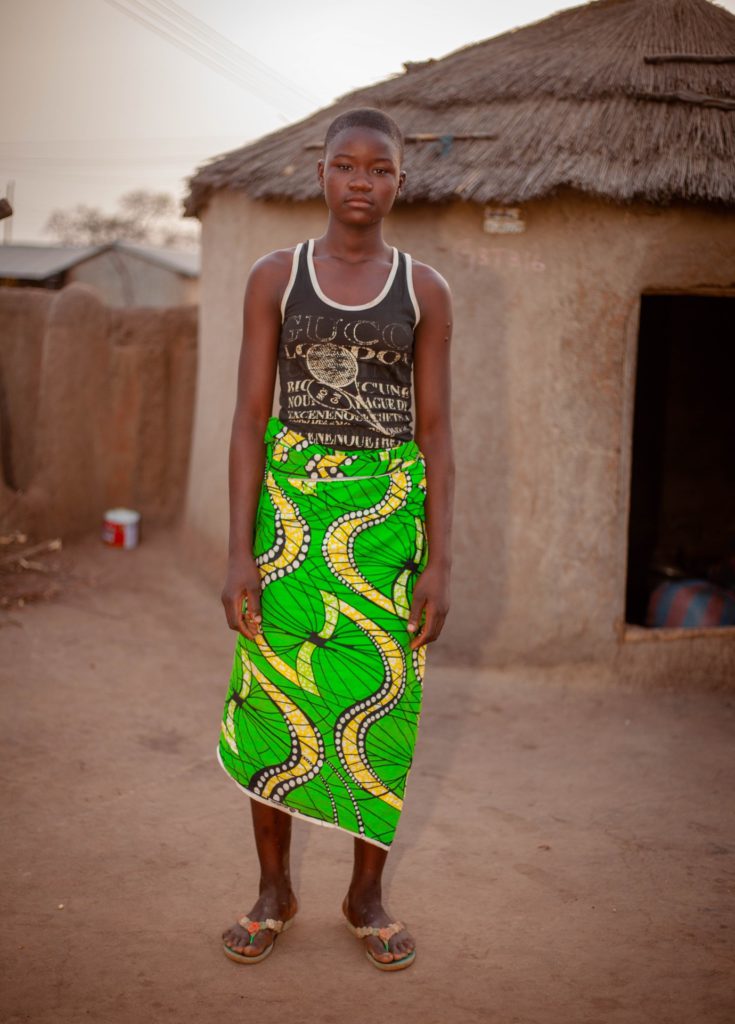
For twenty five years, Naabuli, located in the Gushegu District, has had only one claim to fame; the Naabuli witches camp. A so-called deity here that could cleanse people off witchcraft became a safe haven for women who came from far and near to seek help after their communities banish them. One of them is Bakpo Tiig who lives with her Grandson, Blassiem Jekpora.
Bakpo’s story of how she came here, is similar to that of many of the women here.
She refused to attend the funeral of a family member- her rival- who had died. After the funeral, rumour went wild across the community that her absence was because she was the one who had killed the deceased.
She was in her kitchen, preparing dinner, when a mob wielding clubs and sticks stormed her home. She had two options; stay and get beaten to death or run and never come back. “I was beaten mercilessly. I could see death starring me,” she said.
She run away with nothing, on foot, for three hours and came to Naabuli- the closest to her. This was in 1995. Ten children have since come to live with her in the camp and moved on before Blasiem who is now 13.
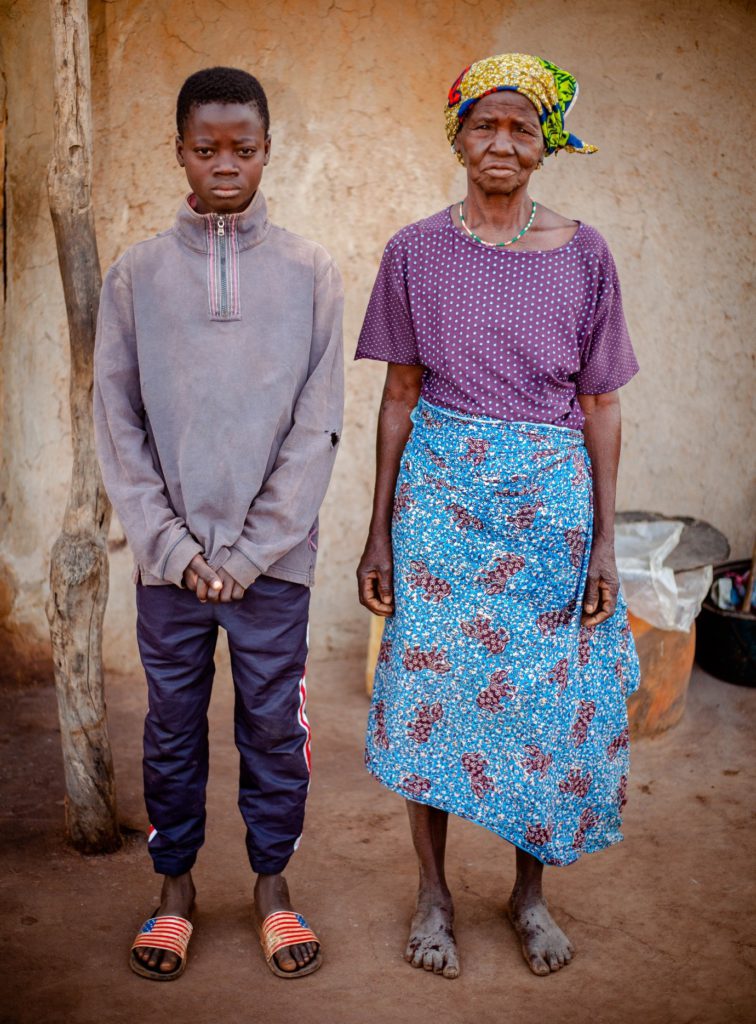
“The first time I came here, I saw only women here. We are the only children here. I keep asking myself; my grand mum is old and I am also too young, what can we do? People say my Grandmother is a witch. That she is going to kill me,” says Blasiem.
“Now my life is hanging on the balance. I can die anytime soon,” says Bakpo, now 87.
Blasiem attends the only school in Naabuli. He is in class 6, about 4 years behind his age mates but even he, is lucky. More than half of all children who live in the three witches camps I visited- over 200 of them-do not go to school.
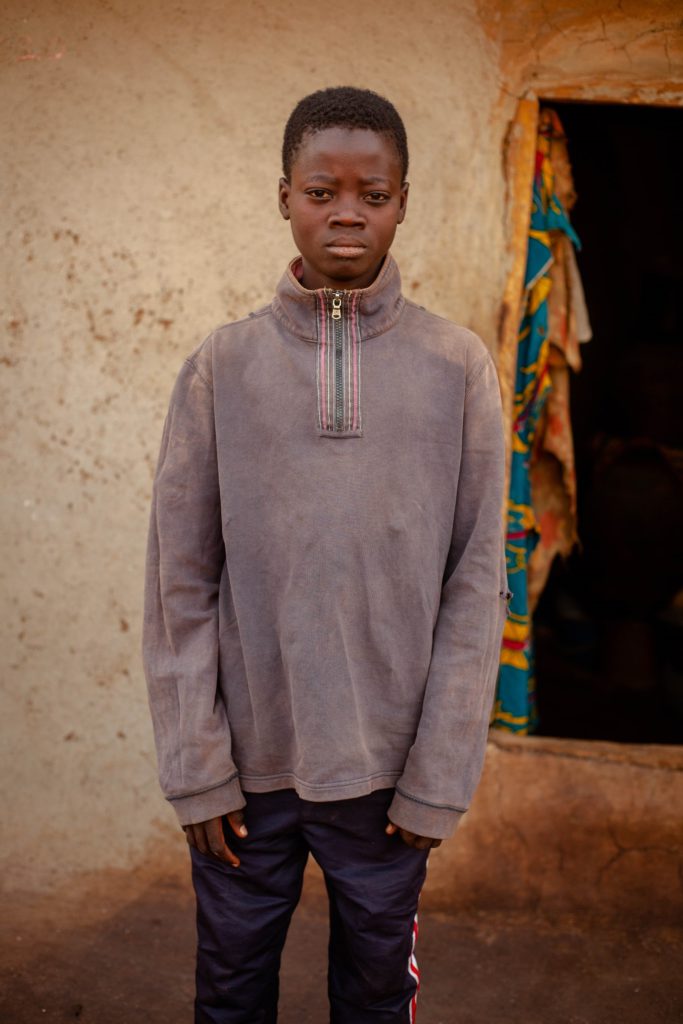
Ghana has many laws on child rights. The clearest of all is the Children’s Act 560, enacted twenty-two years ago. That law says in part that;
“No person shall deny a child the right to live with his parents and family and grow up in a caring and peaceful environment unless it is proved in court that living with his parents would – (a) lead to significant harm to the child; or (b) subject the child to serious abuse; or (c) not be in the best interest of the child”
That same law guarantees a right to education for all children.
“On top of all the problems these children face, they also have to deal with stigma. People believe witchcraft is hereditary and so if you are a witch’s Grandchild, you are also a witch,” says Lamnatu Adam, when I asked her why some of the children stay away from school.
She works with rights campaign group, Songtaaba which she founded in 2006…. Lamna, as she is affectionately called by all including the women in the camps, has spent close to two decades working in Ghana’s witch’s camps and documenting the lives of the inmates and their children.
“Who should be responsible for the lives of these vulnerable children,” she asks me too.
“I feel like running away but I don’t know who would take care of my Grandmother when I go,” says 13 year old Serwaa.
She sits on the corridors of the Naabuli Public School- the same school Blasiem attends. She too is one of the lucky few in school.
“When I come to school, a lot of the children laugh at me. They say, I am the daughter of a witch. It makes me want to leave the classroom”
When I asked her if she would leave the camp if she had the chance, she burst into tears. “Yes,” she said after about a minute of sobbing.
“The children who live in the witches camps are going through a lot of problems. I fear for their future, they can’t even stay in school and what kind of life they’d have”
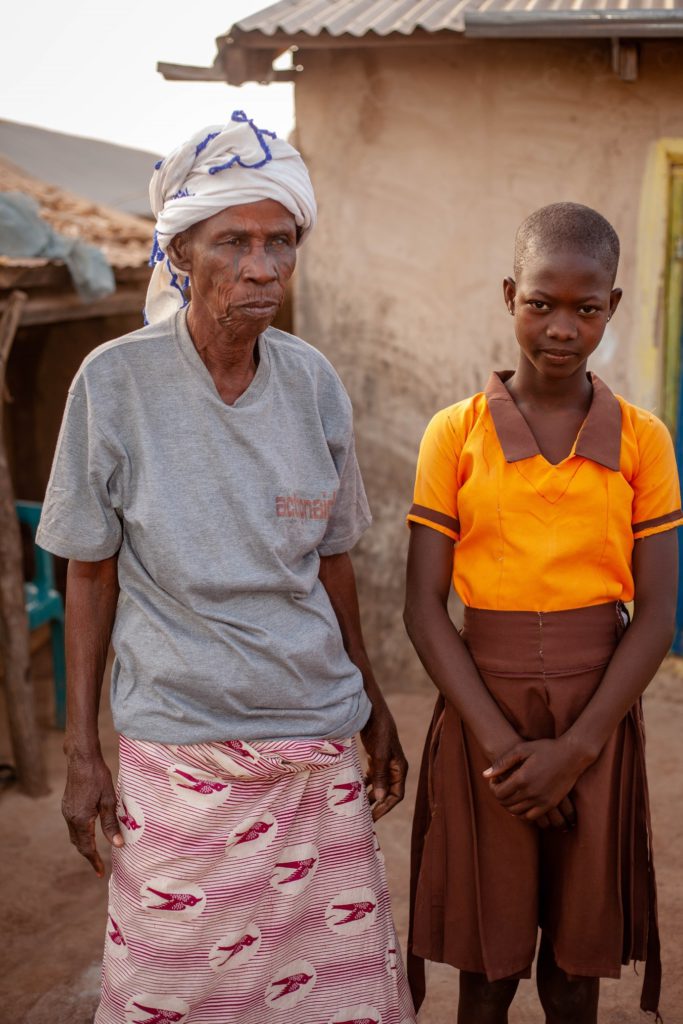
“They are my enemies. They are the reason why we are suffering,” says 14 year old Safia Suale, sitting under a baobab tree inside the Ngaani witches camp.
With 207 inmates, Ngaani is Ghana’s largest witches’ camp. Here too, over 200 children live , many out of school. Saafia Suale is one of them.
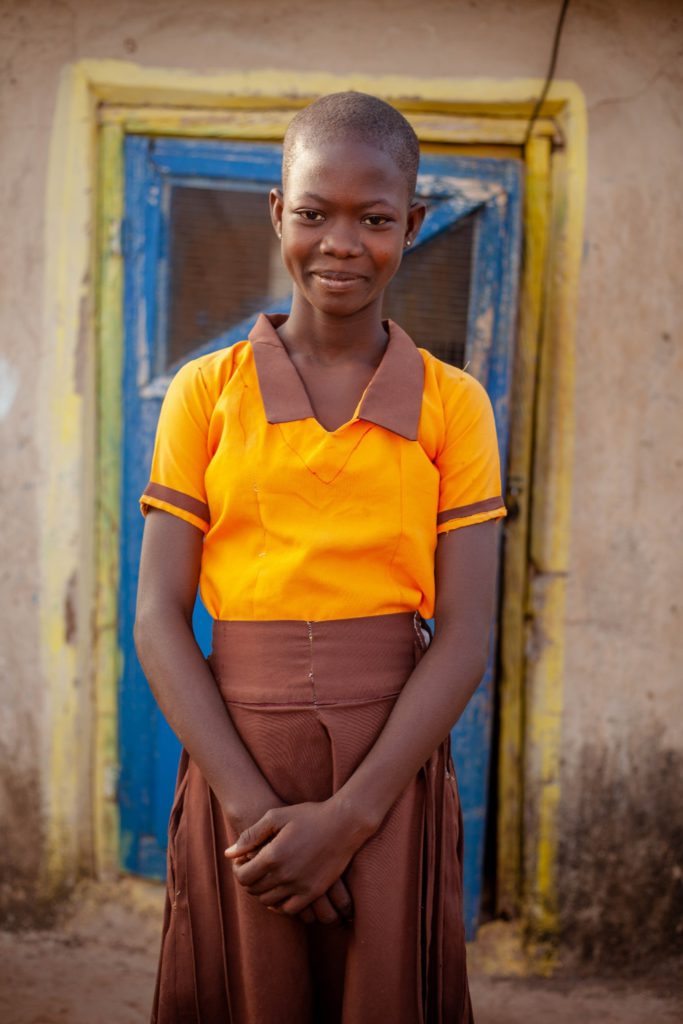
“Since I came here, many bad things happen in this camp. Some of the girls get sexual advances from men in the camp. You have to be strong to live here”
Inside the Headquarters for the Domestic Violence and Victims Support Unit of the Police Service in Tamale, the Northern regional capital, Emmanuel Horlotu who heads the division talks to me about the challenges they face trying to fight the human rights abuses that come with the belief in witchcraft in the region.
“Children are beaten, children are raped, and there is so much abuse of children in this region generally. It is a really difficult situation here,” he says.
There’s a cultural bond that is common among many ethnic groups in Northern Ghana. This makes it difficult for people to report those they see as brothers or sisters in they are the ones that are caught up abusing others.
“Less than one percent of all the cases we deal with in terms of witchcraft accusations and beating end up in court. People always say we will take the matter home and settle,” says Holortu.
The police itself is helpless with an underwhelming number of men on the field, the closest Police Post from some of these camps is two hours away.
The Northern region is already one of Ghana’s poorest and also accounting for one of the highest figures of children of school-going age who are out of the Classroom- 50,000- out of the overall 500,000 in the 16 regions.
High levels of poverty and underdevelopment in this region means children are usually the ones bearing the brunt. Naabuli for example has a chronic water shortage problem. This is the story of many of the communities in this area. So in these camps, children walk for close to two hours to fetch water.
“There’s no water in this community. That is difficult for all of us. Sometimes we walk here and there is no water so we have to walk back…”
The only source of water in the village dries up sometimes.
“Some children who go to school sometimes do not bath for 2 weeks because there’s no water. They smell so bad Teachers would have to send them out of school,” says Sulemana Abukari, a community leader.
In the camps, the people who call the shots are the soothsayers known locally as the Tindaanas’. They have inherited their position from many generations that came before them and are seen as the powerful arbiters who have the charm to pass a judgement on which of the people brought to the camp are witches or not.
“We the ones running these camps are actually doing a good job. But for us, all of these women and the children would be killed wherever they are accused from,” says Alhassan Shee, the Tindaana in Ngaani.
“Sometimes I feel sad for the children but without them the women too would die,” he says.
Back in Accra I meet Joseph Whittal who heads the Commission of Human Rights and Administrative Justice (CHRAJ), he knows this subject too well. Many years ago, Whittal worked for CHRAJ in the Upper West Region as a young lawyer. He spent some months to study the lives of women in the Gambaga Witches Camp- also one of the country’s largest. The work he produced then, would be a major reference point that would guide the government and civil society on how to address Ghana’s witches’ camp problem.
The office he holds today is supposed to uphold the rights of the women and their children yet they do not have any representation in any of the camps I visited for this documentary.
“We have said it for years that this is a problem that the state should get involved and address,” he says.
The CHRAJ is seriously under-resourced. In the northern region, nearly all of its work in dealing with the issue of alleged witches is funded by Civil Society groups.
“The state is not even present in the camps,” he said.
It’s hard to find where to put the blame for the conditions children in witches camps endure. In some ways, the camps are safe havens, offering accused witches and their children a place to run to from persecution and sometimes even murder.
In part, this is a result of a broken social protection system that has no room for state-run centres to replace witches’ camps. Places that could be monitored and effectively regulated.
Much of the work and resources that have gone into supporting alleged witches and their children have come from right campaigners with very little or no government money.
Such resources may run out at some point as these organisations refocus where to invest. It leaves you wondering how and when, this very complex problem would be solved, if it ever will.
Source: Justice Baidoo in Naabuli | JoyNews

Putting a spotlight on business, inventions, leadership, influencers, women, technology, and lifestyle. We inspire, educate, celebrate success and reward resilience.

